1 #WBTC1 #Conserve1 A grandma, some teenagers & a random family. They all have something in common: they use social media, live close to bat roosts and do not have a wide background on bat research. Yet, they are regularly targeted by the news forged by scientists and journalists
2 #WBTC1 #Conserve1 Often misunderstood bats have traditionally been victims of hostility/prejudice. What would be these people& #39;s reaction to truthful, objective but relentless headlines such as: Although unlikely contagious bats harbour viruses that may put human health at risk?
3 #WBTC1 #Conserve1 The question is.. how are we framing bats to the public? A review of 266 virological studies preCovid showed #bats were described as a threat for human health in 51% of them but their ecosystem services were generally disregarded (96%) https://abs.twimg.com/emoji/v2/... draggable="false" alt="🌍" title="Earth globe europe-africa" aria-label="Emoji: Earth globe europe-africa"> https://tinyurl.com/y9xtc5oh ">https://tinyurl.com/y9xtc5oh&...
https://abs.twimg.com/emoji/v2/... draggable="false" alt="🌍" title="Earth globe europe-africa" aria-label="Emoji: Earth globe europe-africa"> https://tinyurl.com/y9xtc5oh ">https://tinyurl.com/y9xtc5oh&...
4 #WBTC1 #Conserve1 Additionally, we screened 1054 public news from 15 newspapers from the five most populated countries within the EU and found that virus-related news had significantly more social-engagement than those related to #ecology and #conservation (results in process)
5. #WBTC1 #Conserve1 Surprising? No; predictable. But not less important. The demonisation of  https://abs.twimg.com/emoji/v2/... draggable="false" alt="🦇" title="Bat" aria-label="Emoji: Bat"> by disease speculation is eroding their value into the society, undermining decades of #conservation tasks.
https://abs.twimg.com/emoji/v2/... draggable="false" alt="🦇" title="Bat" aria-label="Emoji: Bat"> by disease speculation is eroding their value into the society, undermining decades of #conservation tasks.
 https://abs.twimg.com/emoji/v2/... draggable="false" alt="⚠" title="Warning sign" aria-label="Emoji: Warning sign">RMR Providing 50%-50% disease and conservation risks info DOES NOT WORK
https://abs.twimg.com/emoji/v2/... draggable="false" alt="⚠" title="Warning sign" aria-label="Emoji: Warning sign">RMR Providing 50%-50% disease and conservation risks info DOES NOT WORK https://abs.twimg.com/emoji/v2/... draggable="false" alt="⚠" title="Warning sign" aria-label="Emoji: Warning sign">
https://abs.twimg.com/emoji/v2/... draggable="false" alt="⚠" title="Warning sign" aria-label="Emoji: Warning sign">

 Read on Twitter
Read on Twitter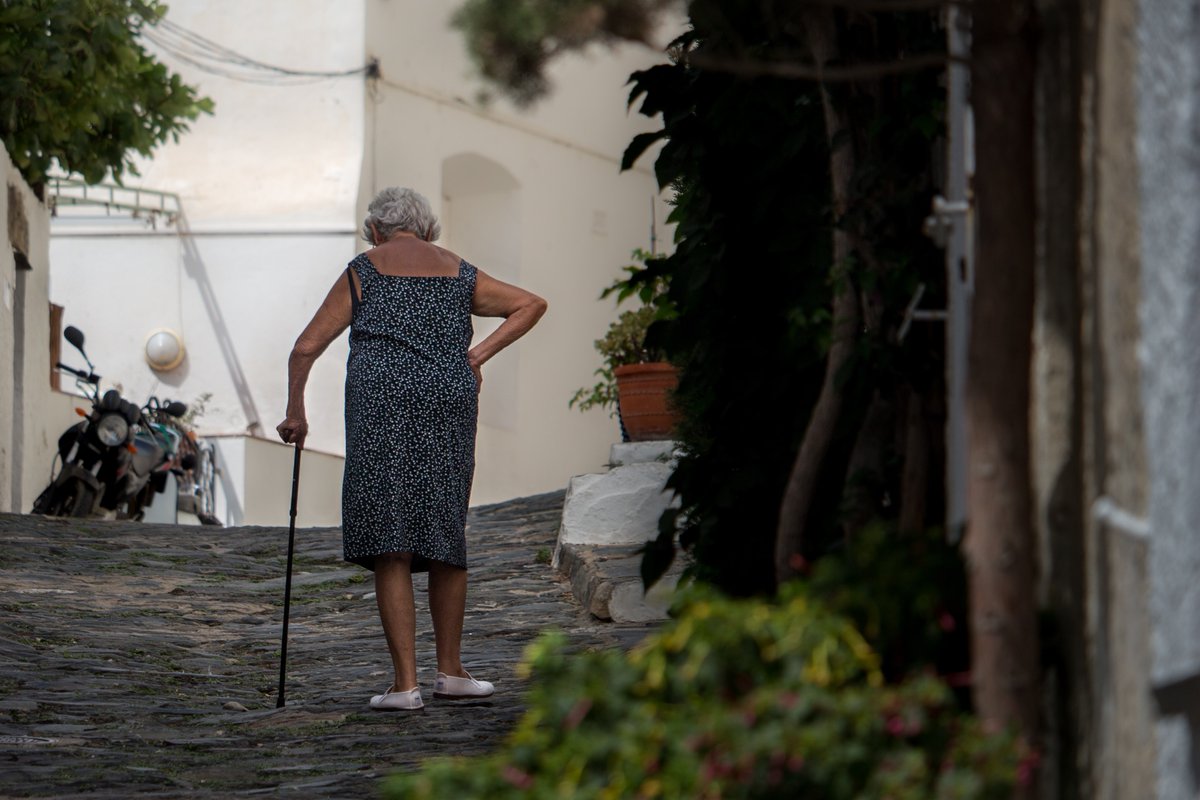


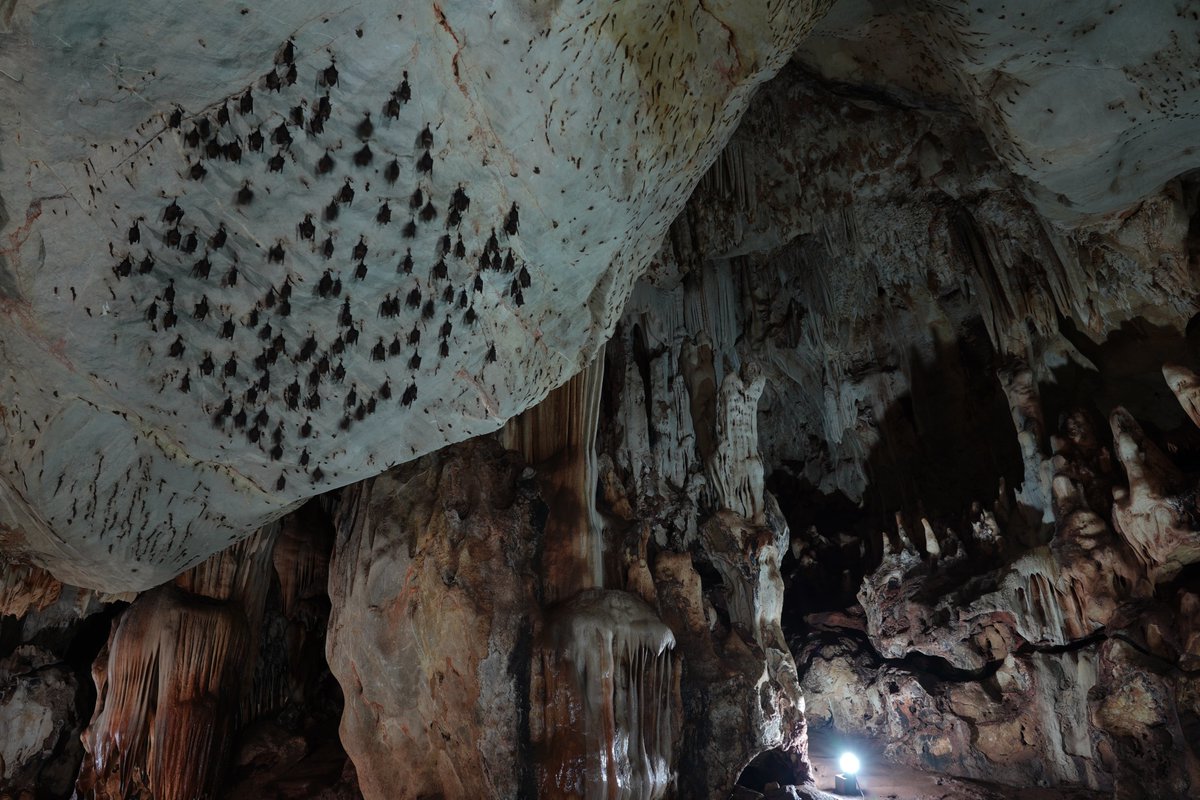


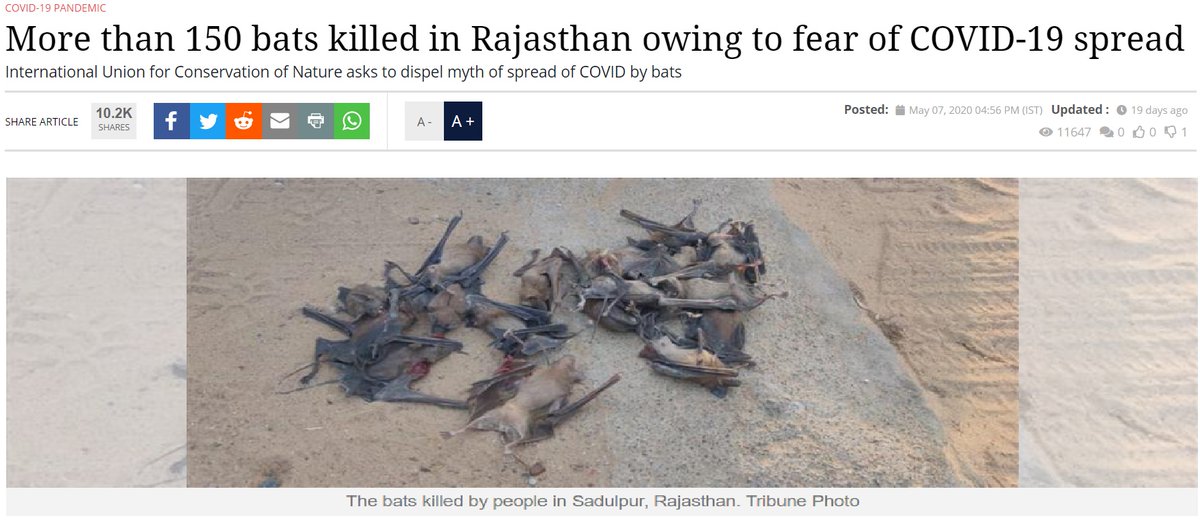
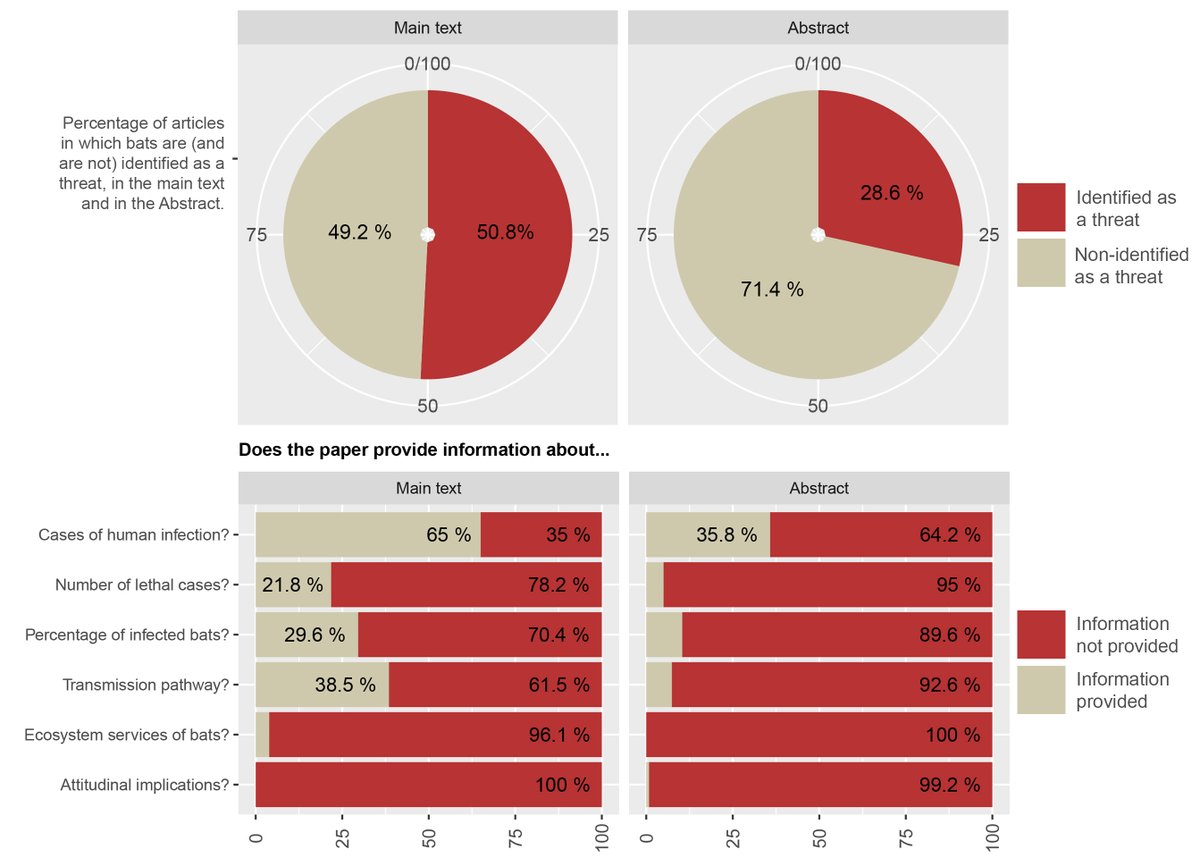 https://tinyurl.com/y9xtc5oh&..." title="3 #WBTC1 #Conserve1 The question is.. how are we framing bats to the public? A review of 266 virological studies preCovid showed #bats were described as a threat for human health in 51% of them but their ecosystem services were generally disregarded (96%)https://abs.twimg.com/emoji/v2/... draggable="false" alt="🌍" title="Earth globe europe-africa" aria-label="Emoji: Earth globe europe-africa"> https://tinyurl.com/y9xtc5oh&..." class="img-responsive" style="max-width:100%;"/>
https://tinyurl.com/y9xtc5oh&..." title="3 #WBTC1 #Conserve1 The question is.. how are we framing bats to the public? A review of 266 virological studies preCovid showed #bats were described as a threat for human health in 51% of them but their ecosystem services were generally disregarded (96%)https://abs.twimg.com/emoji/v2/... draggable="false" alt="🌍" title="Earth globe europe-africa" aria-label="Emoji: Earth globe europe-africa"> https://tinyurl.com/y9xtc5oh&..." class="img-responsive" style="max-width:100%;"/>
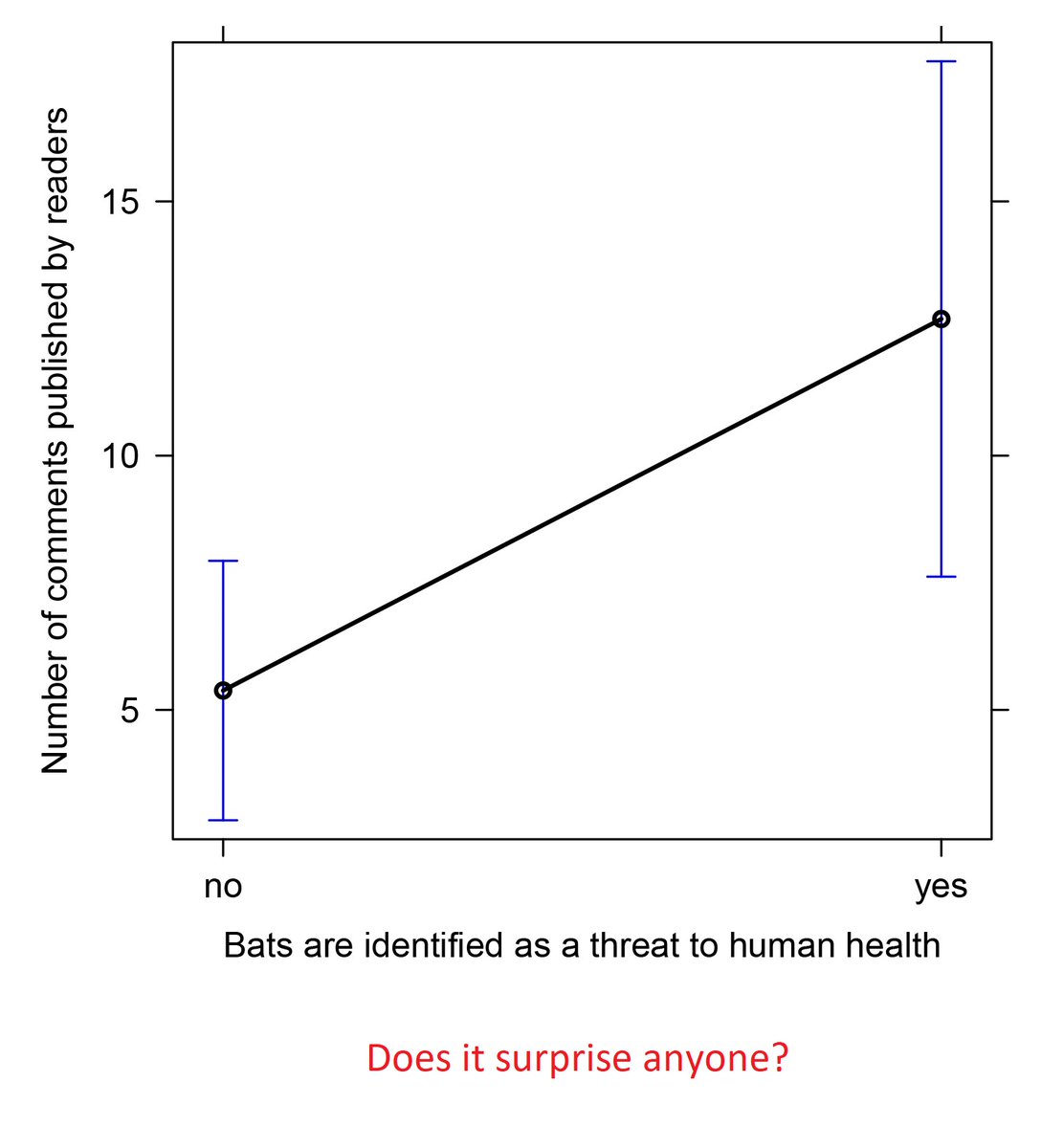

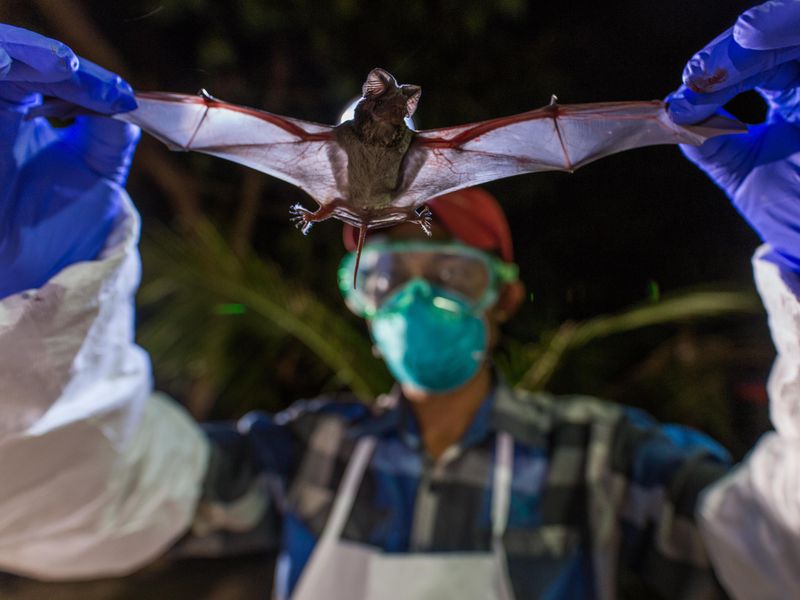
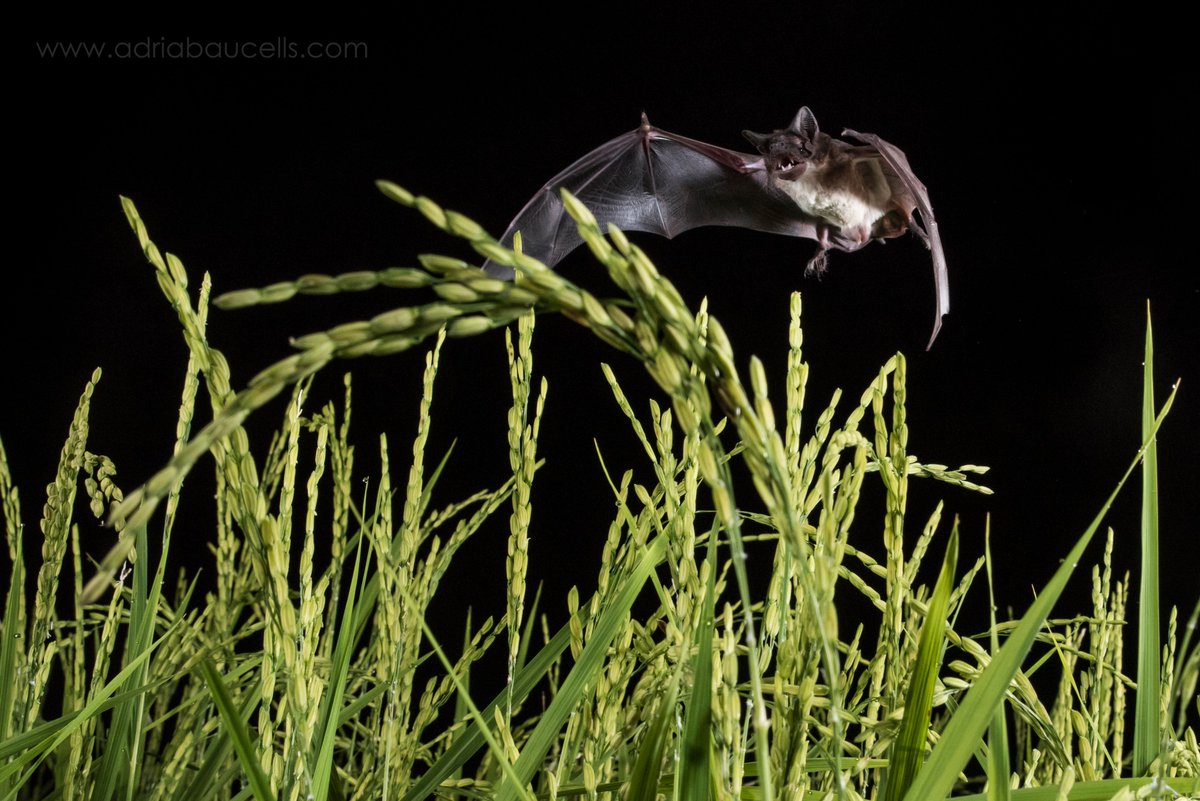 by disease speculation is eroding their value into the society, undermining decades of #conservation tasks.https://abs.twimg.com/emoji/v2/... draggable="false" alt="⚠" title="Warning sign" aria-label="Emoji: Warning sign">RMR Providing 50%-50% disease and conservation risks info DOES NOT WORKhttps://abs.twimg.com/emoji/v2/... draggable="false" alt="⚠" title="Warning sign" aria-label="Emoji: Warning sign">" title="5. #WBTC1 #Conserve1 Surprising? No; predictable. But not less important. The demonisation of https://abs.twimg.com/emoji/v2/... draggable="false" alt="🦇" title="Bat" aria-label="Emoji: Bat"> by disease speculation is eroding their value into the society, undermining decades of #conservation tasks.https://abs.twimg.com/emoji/v2/... draggable="false" alt="⚠" title="Warning sign" aria-label="Emoji: Warning sign">RMR Providing 50%-50% disease and conservation risks info DOES NOT WORKhttps://abs.twimg.com/emoji/v2/... draggable="false" alt="⚠" title="Warning sign" aria-label="Emoji: Warning sign">" class="img-responsive" style="max-width:100%;"/>
by disease speculation is eroding their value into the society, undermining decades of #conservation tasks.https://abs.twimg.com/emoji/v2/... draggable="false" alt="⚠" title="Warning sign" aria-label="Emoji: Warning sign">RMR Providing 50%-50% disease and conservation risks info DOES NOT WORKhttps://abs.twimg.com/emoji/v2/... draggable="false" alt="⚠" title="Warning sign" aria-label="Emoji: Warning sign">" title="5. #WBTC1 #Conserve1 Surprising? No; predictable. But not less important. The demonisation of https://abs.twimg.com/emoji/v2/... draggable="false" alt="🦇" title="Bat" aria-label="Emoji: Bat"> by disease speculation is eroding their value into the society, undermining decades of #conservation tasks.https://abs.twimg.com/emoji/v2/... draggable="false" alt="⚠" title="Warning sign" aria-label="Emoji: Warning sign">RMR Providing 50%-50% disease and conservation risks info DOES NOT WORKhttps://abs.twimg.com/emoji/v2/... draggable="false" alt="⚠" title="Warning sign" aria-label="Emoji: Warning sign">" class="img-responsive" style="max-width:100%;"/>


